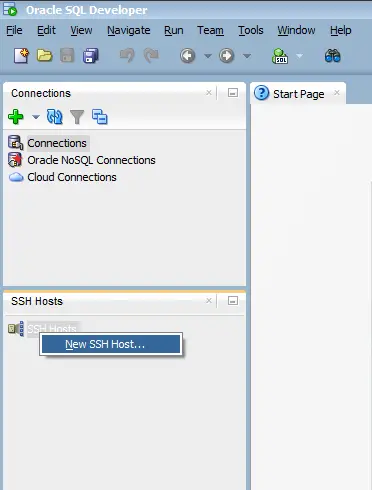Ssh To Host Generated Key
I've just generated my RSA key pair, and I wanted to add that key to GitHub. I tried cd idrsa.pub and idrsa.pub, but no luck. How can I access my SSH public key? Jul 29, 2019 Learn how to set up a secure connection to a remote host by generating SSH Keys on Ubuntu 18.04. An SSH Key is a secure method of logging into your server! Overview Public key authentication is a way of logging into an SSH/SFTP account using a cryptographic key rather than a password. If you use very strong SSH/SFTP passwords, your accounts are already safe from brute force attacks. However, using public key authentication provides many benefits when working with multiple developers. Click Generate Key. This returns you to the list of keys that have been generated. If your new key does not appear in the list, then your user has not been granted SSH access. Keys must be authorized before they can be used, so under Public Keys, click Manage Authorization in the list of keys. You should get an SSH host key fingerprint along with your credentials from a server administrator. Knowing the host key fingerprint and thus being able to verify it is an integral part of securing an SSH connection. It prevents man-in-the-middle attacks. Safely obtaining host key.
How do I regenerate OpenSSH sshd server host keys stored in /etc/ssh/ssh_host_* files? Can I safely regenerate ssh host keys using remote ssh session as my existing ssh connections shouldn’t be interrupted on Debian or Ubuntu Linux? How do I regenerate new ssh server keys? How to regenerate new host keys on a Debian or Ubuntu Linux?[donotprint][/donotprint]To regenerate keys you need to delete old files and reconfigure openssh-server. It is also safe to run following commands over remote ssh based session. Your existing session shouldn’t be interrupted.
Why regenerate new ssh server keys?
Most Linux and Unix distribution create ssh keys for you during the installation of the OpenSSH server package. But it may be useful to be able re-generate new server keys from time to time. For example, when you duplicate VM (KVM or container) which contains an installed ssh package and you need to use different keys from cloned KVM VM guest/machine.
Steps to regenerate OpenSSH host keys on Linux
Let us see all steps
Step 1 – Delete old ssh host keys
Login as the root and type the following command to delete files on your SSHD server:# /bin/rm -v /etc/ssh/ssh_host_*
Sample outputs: How is aes key generated.

Step 2 – Debian or Ubuntu Linux Regenerate OpenSSH Host Keys
Now create a new set of keys on your SSHD server, enter:# dpkg-reconfigure openssh-server
Sample output:
You just regenerated new ssh server keys. You need to restart ssh server:$ sudo systemctl restart ssh
OR$ /etc/init.d/ssh restart
Step 3 – Update all ssh client(s) known_hosts files
Finally, you need to update ~/.ssh/known_hosts files on client computers, otherwise everyone will see an error message that read as follows:
Either remove host fingerprint or update the file using vi text editor (command must be typed on client machine):$ ssh-keygen -R remote-server-name-here
Now login using the ssh command:$ ssh vivek@server1.cyberciti.biz/specify-generated-value-of-composite-primary-keys-in-jpa.html.
Conclusion
You just regenerated OpenSSH Host Keys on a Debian or Ubuntu Linux using the dpkg-reconfigure command. For more info see the man page or this wiki page here:$ man dpkg-reconfigure
$ man sshd
Ssh Add Correct Host Key
ADVERTISEMENTS



